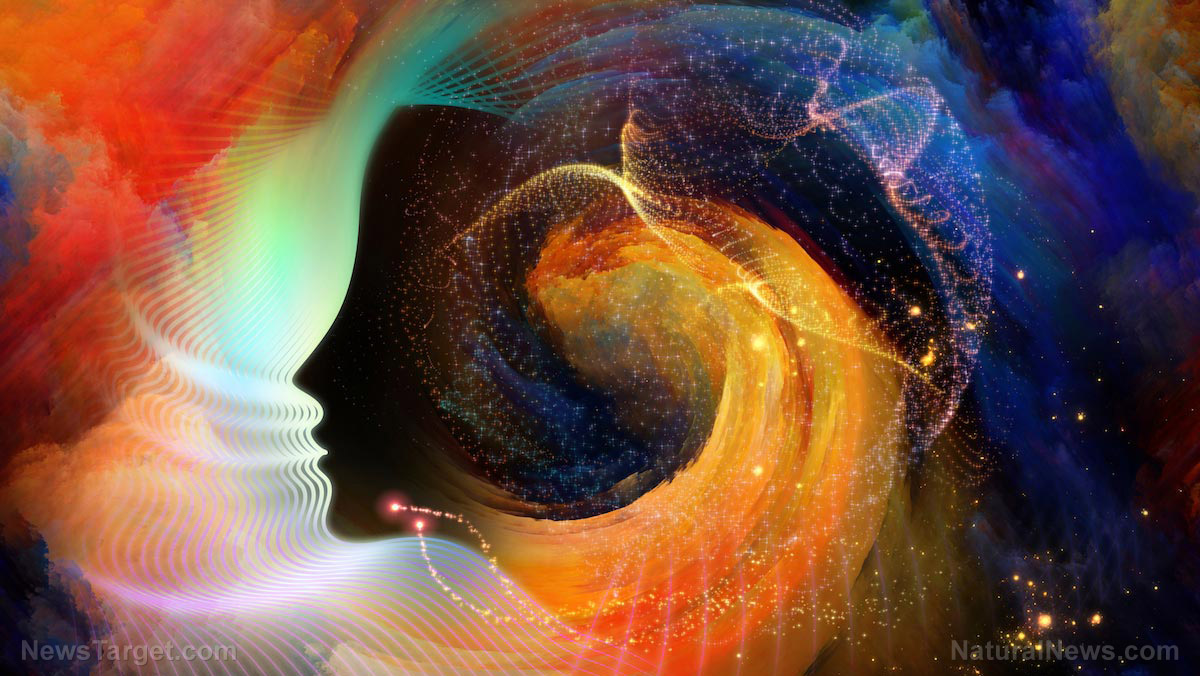 Parler
Parler Gab
Gab
- The "hard problem" of consciousness questions how physical matter in the brain creates subjective experience, a problem materialist science has failed to solve.
- Panpsychism, the idea that consciousness is a fundamental aspect of reality, is gaining traction as a viable alternative to physicalism.
- A recent academic workshop brought together leading thinkers to debate these ideas, highlighting a significant schism in the scientific community.
- Proponents argue panpsychism solves the hard problem by positing that consciousness was always present, not emergent.
- Critics contend panpsychism is untestable, creates new problems, and offers no real explanatory power.
The hard problem and the failure of physicalism
The central dilemma, dubbed the "hard problem" of consciousness by philosopher David Chalmers, is the question of how the watery, physical tissue of the brain produces the vivid, private movie of subjective experience—the red of a rose, the pain of a burn, the feeling of love. Neuroscientists can identify brain regions that light up during these experiences, but they cannot explain how electrical impulses transform into the "wine of consciousness." Philosopher Hedda Hassel Mørch points out the clear explanatory gap: knowing every physical detail of a brain does not tell you what it feels like to be that person. This gap suggests that physical facts alone may be insufficient to account for the reality of our inner lives. For too long, the scientific priesthood has dismissed this gap, hoping more complex models would bridge it, yet this approach has led precisely nowhere, leaving the most intimate part of our existence a total mystery.Panpsychism: a universe awake
In response to this impasse, the ancient idea of panpsychism is experiencing a modern renaissance. This theory proposes that consciousness is as fundamental to the cosmos as mass or electrical charge. It suggests that mindedness was not a late arrival in an indifferent universe but was there from the beginning, residing in the very fabric of spacetime. Prominent figures like neuroscientist Christof Koch have embraced this view, suggesting that if consciousness is not dependent on any specific material, then it is a simple step to conclude "the entire cosmos is suffused with sentience." This is not to say a rock is contemplative, but that the fundamental constituents of reality may possess some primitive precursor to feeling. This revolutionary perspective shatters the lonely, mechanistic worldview of Newton and Descartes, replacing it with a vision of a deeply interconnected and inherently conscious living universe, a concept that aligns with cutting-edge discoveries in quantum physics and biofield research.The debate rages: a clash of worldviews
The battle lines were drawn at a recent workshop where philosophers and scientists clashed over these foundational ideas. Philosopher Philip Goff, a leading panpsychist, argued that physicists have ignored the most real thing we know—our conscious experience—in their quest to model reality. He and others contend that physicalism is incapable of telling the complete story. On the other side stands the physicalist camp, led by physicist Sean Carroll, who argues that consciousness is an emergent property of complex systems, much like temperature emerges from the collective motion of atoms. Carroll insists physicalism is doing just fine and that the supposed "hard problem" is a philosophical distraction, not a scientific failure. Critics of panpsychism also point to its own "combination problem"—the puzzle of how tiny bits of cosmic consciousness combine to form the rich, unified experience of a human mind. Furthermore, skeptics like neuroscientist Anil Seth dismiss panpsychism as an untestable "get-out" that provides no real scientific leverage on the problem. The debate is more than academic; it has profound ethical implications. Goff passionately argues that if we dismiss inner life, we risk horrific cruelty, asking not if a fish feels pain but only how it behaves. This scientific revolution is ultimately about reclaiming the heart and soul of a universe that materialist science tried to strip away. The implications of this paradigm shift are staggering, forcing a re-evaluation of life, death, and our relationship to all existence. The old guard may cling to their sterile, mechanical models, but the evidence for a conscious, interconnected reality continues to mount, breaking through the artificial barriers of a dying scientific dogma. Sources include: ScientificAmerican.com PsychologyToday.com SocSci.UCI.edu Enoch, Brighteon.aiWalking 5,000 steps a day could delay Alzheimer’s progression by years, study finds
By Patrick Lewis // Share
The hidden health risks of screen time: How your smartphone affects your body
By Belle Carter // Share
Government shutdown surpasses 30 days, impacting energy sector and vital services
By Ramon Tomey // Share
Governments continue to obscure COVID-19 vaccine data amid rising concerns over excess deaths
By patricklewis // Share
Tech giant Microsoft backs EXTINCTION with its support of carbon capture programs
By ramontomeydw // Share
Germany to resume arms exports to Israel despite repeated ceasefire violations
By isabelle // Share










